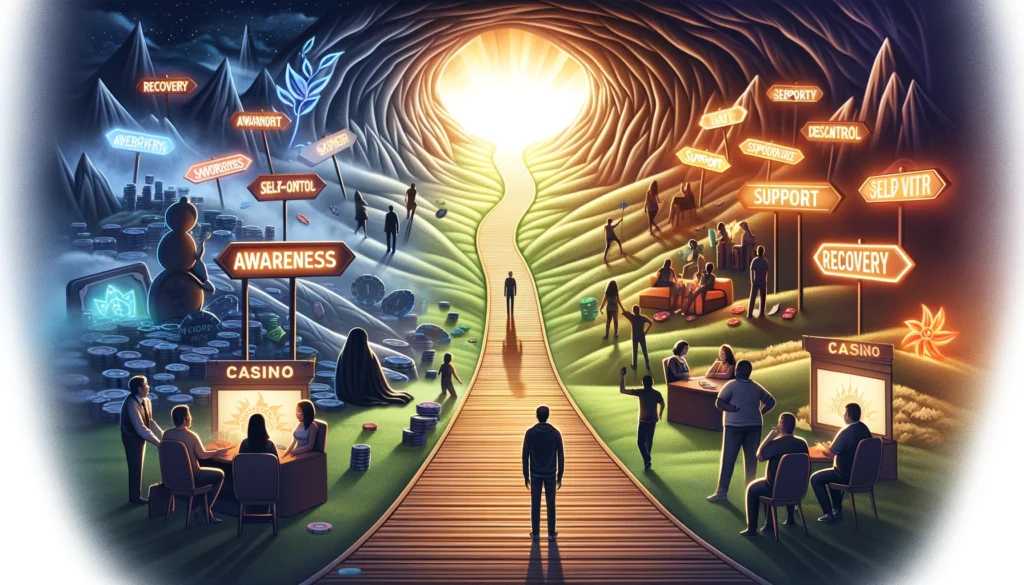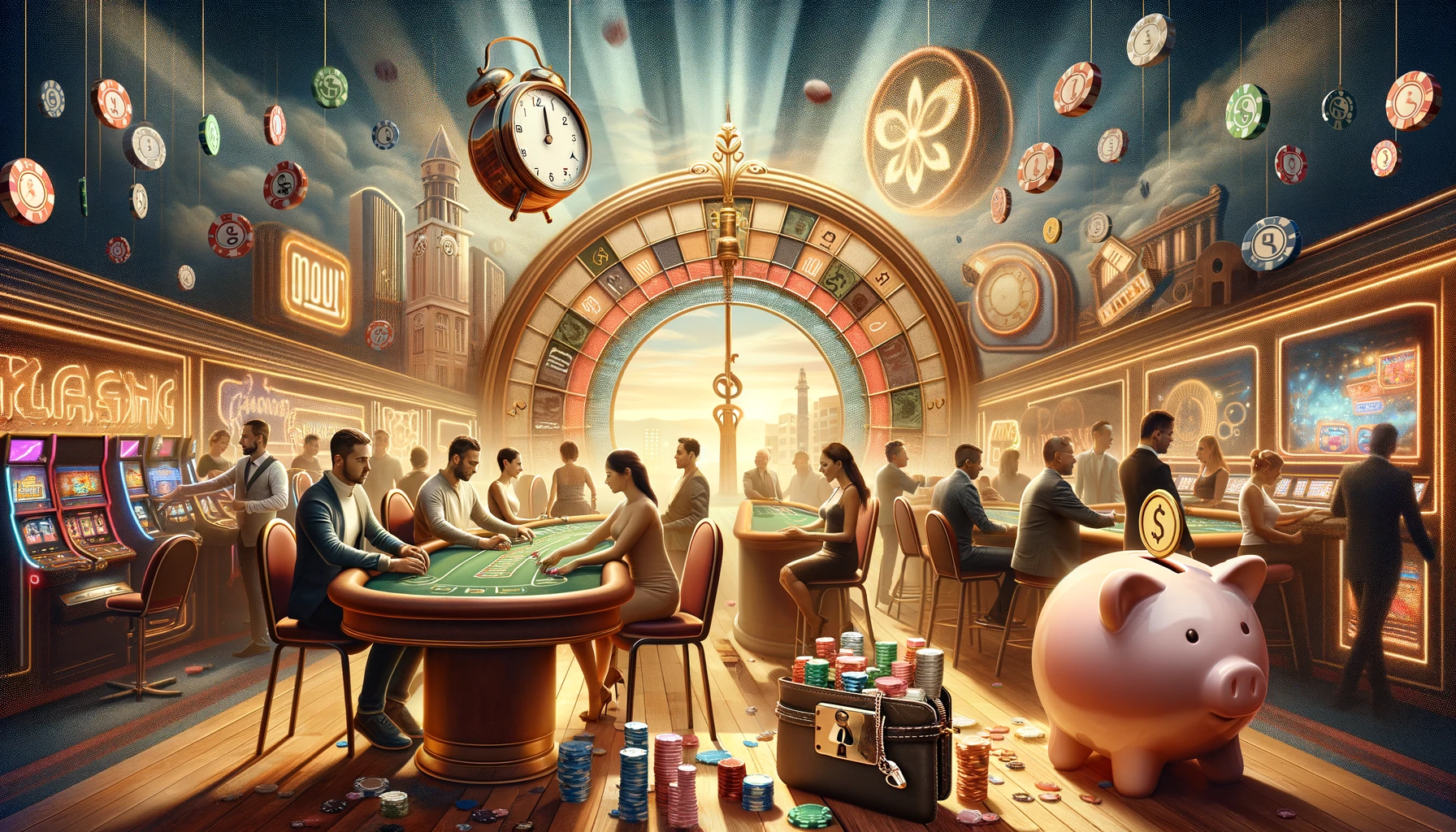Responsible Gambling: A Personal Journey Towards Awareness and Education
The allure of gambling, both online and in local gaming venues, can be powerful, offering the promise of fun, excitement, and the potential for big wins. However, without the right approach and mindset, what starts as recreational fun can quickly spiral into a situation that’s far from controlled. My personal journey through a five-year struggle with gambling addiction has been both challenging and enlightening, and it’s this experience that has inspired me to educate others about the importance of responsible gambling.
Understanding the Risks
Gambling addiction is a serious issue that can lead to significant financial, emotional, and personal consequences. Over my five-year battle as a gambling addict, I witnessed firsthand how unchecked casino gambling can consume one’s life, leading to strained relationships, financial ruin, and a profound sense of loss. It’s a path I wouldn’t wish on anyone, and it’s why I now advocate for responsible gambling practices.

The Importance of Responsible Gambling
Responsible gambling involves understanding the risks, recognizing the signs of addiction, and taking proactive steps to maintain control. It’s about setting limits, knowing when to stop, and understanding that gambling should never be seen as a source of income or a solution to financial problems. Here are some principles I’ve embraced and now share to help others navigate the world of gambling safely:
- Set Limits on Time and Money: Decide in advance how much money and time you’re willing to spend, and stick to these limits. It’s crucial to view these limits as non-negotiable.
- Never Chase Losses: One of the most dangerous traps is trying to win back money that you’ve lost. Accept losses as part of the game and understand that no “sure bet” can guarantee a win.
- Recognize the Signs of Problem Gambling: Be honest with yourself about your gambling habits. Signs of a problem include spending more than you can afford, neglecting responsibilities, and gambling to escape problems.
- Seek Help When Needed: If you find that gambling is taking over your life, don’t hesitate to seek help. Many resources are available, including counseling services and support groups designed to help those struggling with gambling addiction.
- Play for Fun, Not to Make Money: Approach gambling as a form of entertainment, not a way to make money. The odds are always in favor of the house, and gambling should never be seen as a financial strategy.
Turning Experience into Advocacy
My journey through gambling addiction to recovery has taught me the value of self-awareness, discipline, and the importance of seeking support when needed. By sharing my experience, I hope to encourage others to approach gambling with caution and responsibility, recognizing the potential risks and taking steps to protect themselves.
Gambling can be a fun and enjoyable activity when done responsibly. However, it’s essential to remain vigilant, educate oneself about the dangers, and always practice safe gambling habits. If you or someone you know is struggling with gambling addiction, remember, help is available, and recovery is possible. It’s a lesson I learned the hard way, but it’s one that has ultimately led me to a path of advocacy, education, and a commitment to promoting responsible gambling.
FAQs on Responsible Gambling and Overcoming Addiction
1. What is responsible gambling? Responsible gambling is the practice of engaging in gambling activities in a way that maintains control, minimizes risk, and prioritizes safety and well-being. It involves setting and adhering to strict limits on time and money spent gambling, understanding the odds, and gambling for entertainment rather than as a means to make money.
2. How can I set limits on my gambling? You can set limits by deciding in advance how much money and time you are willing to spend on gambling and sticking to these limits. Many online gambling sites offer tools that allow you to set these limits directly on your account. It’s important to view these limits as non-negotiable.
3. What are the signs of a gambling problem? Signs of a gambling problem include spending more money or time gambling than you can afford, struggling to control or stop gambling, neglecting responsibilities or relationships due to gambling, lying about gambling habits, and gambling to escape problems or feelings of depression or anxiety.
4. Where can I seek help for a gambling addiction? Help is available through various resources, including national and local gambling support organizations, helplines, counseling services, and support groups such as Gamblers Anonymous. Many of these services are confidential and can provide both support and guidance on overcoming addiction.
5. Is it possible to gamble safely after a gambling addiction? For individuals recovering from gambling addiction, the safest course of action is often to avoid gambling altogether to prevent relapse. However, recovery is a personal journey, and some may eventually find they can engage in some form of gambling responsibly. This should only be considered with the guidance of a professional and after a significant period of abstinence and recovery.
6. How can friends and family help a loved one with a gambling problem? Friends and family can play a crucial role by expressing their concerns in a supportive and non-judgmental manner, encouraging the individual to seek help, and being there to support them through their recovery process. It’s also important for them to set boundaries to protect themselves and seek support if needed.
7. Can gambling addiction be cured? While there is no “cure” for gambling addiction, many people successfully manage their addiction and lead fulfilling lives through treatment and support. Recovery from gambling addiction involves learning how to manage behaviors, dealing with the issues underlying gambling, and finding healthy ways to cope with stress or boredom.
8. How long does recovery from gambling addiction take? Recovery from gambling addiction is a lifelong process. The length of time it takes to regain control and rebuild lives varies from person to person and depends on various factors, including the severity of the addiction, the presence of a support system, and the individual’s commitment to recovery.
9. Are online gambling sites doing enough to promote responsible gambling? Many online gambling sites have implemented features to promote responsible gambling, such as setting deposit limits, self-exclusion tools, and reality checks. However, the effectiveness and enforcement of these measures can vary, and there is ongoing debate about the need for stricter regulations to protect vulnerable individuals.
10. How can I gamble more responsibly? To gamble more responsibly, set strict limits on time and money, understand the odds and accept that losing is part of gambling, avoid chasing losses, gamble for fun and not as a way to make money, and take regular breaks. If you find it challenging to stick to these practices, it may be a sign to seek help and reassess your gambling habits.
About Online Casino Magic
OnlineCasinoMagic.com (OCM) has been online since 2002 and is one of the oldest online casino guides where players can find honest reviews of the features and benefits, the pros and cons of each one of the best online casinos for real money in 2024.
